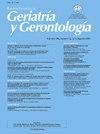“这两年我们老了很多!”COVID-19大流行对独居老年人健康的影响
Q3 Medicine
引用次数: 0
摘要
背景和目的在世界各地开展的调查一致认为,COVID-19大流行恶化了老年人的健康状况。独居者受到的影响尤其严重。我们的目标是分析这一事实,全面解释它们自己传递的描述。方法定性研究遵循扎根理论的指导方针,并使用访谈来收集信息。理论抽样包括102个访谈,所有访谈都是面对面的,分几个阶段进行。结果确定了三个主要主题。1)大流行期间独居老年人采取不活动和久坐不动的生活方式。2)这伴随着医疗保健的短缺,因为他们避免去医院和医疗中心,因为他们被认为是COVID-19感染风险很高的地方,也就是说,因为害怕传染。电话支助不是面对面协商的有效替代办法。3)主观健康的丧失,他们将其归因于大流行病,表现为身体状况恶化,特别是与行动能力、焦虑或抑郁等精神问题和/或认知障碍有关。结论新冠肺炎疫情对独居老年人的健康状况产生了负面影响,其影响不仅是立竿见影的,而且会持续中长期。我们面对的是一个特别脆弱的群体,近年来发生的情况表明,需要进行紧急和深刻的社会干预,以改善他们的生活质量。本文章由计算机程序翻译,如有差异,请以英文原文为准。
«¡Hemos envejecido mucho en estos dos años!». Efectos de la pandemia de COVID-19 sobre la salud de las personas mayores viviendo solas
Background and objective
Surveys carried out around the world agree that the COVID-19 pandemic has deteriorated the health of older people. Those who live alone have been especially affected. Our objective is to analyze this fact, comprehensively interpreting the descriptions that they themselves transmit.
Method
Qualitative research that follows the guidelines of Grounded Theory and uses interviews to collect information. The theoretical sampling consisted of 102 interviews, all in person, carried out in several phases.
Results
Three main themes are identified. 1) The adoption of an inactive and sedentary lifestyle by older people living alone throughout the pandemic. 2) This was accompanied by a deficit in health care, since they avoided going to hospitals and health centers as they were conceived as spaces with a high risk of COVID-19 infection, that is, for fear of contagion. Telephone support was not an effective alternative to face-to-face consultations. 3) The loss of subjective health, which they attribute to the pandemic, in the form of physical worsening, especially related to mobility, mental problems such as anxiety or depression and/or perceived cognitive impairment.
Conclusions
The pandemic has negatively affected the health status of older people living alone, and its effects were not only immediate, but would last in the medium and long term. We are faced with a particularly vulnerable group and what has happened in recent years suggests the need for urgent and profound social interventions that improve their quality of life.
求助全文
通过发布文献求助,成功后即可免费获取论文全文。
去求助
来源期刊

Revista Espanola de Geriatria y Gerontologia
Medicine-Medicine (miscellaneous)
CiteScore
1.90
自引率
0.00%
发文量
62
审稿时长
85 days
期刊介绍:
Una revista de gran prestigio por sus artículos originales de investigación y revisiones. Permite cubrir todas las áreas de la medicina pero siempre desde la atención al paciente anciano, y está presente en los más reconocidos índices internacionales.
 求助内容:
求助内容: 应助结果提醒方式:
应助结果提醒方式:


